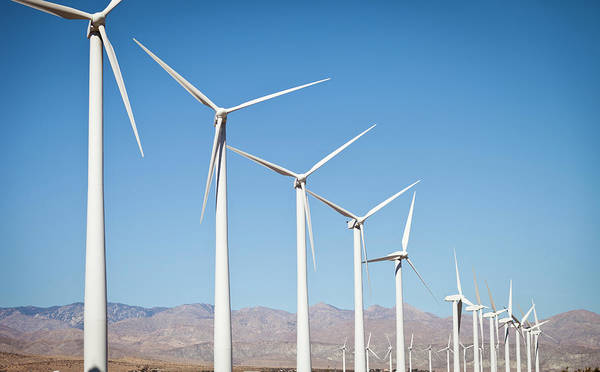In a landmark agreement, Vodacom has entered into a Virtual Wheeling agreement with Eskom, taking a significant step towards mitigating South Africa’s ongoing energy crisis. The initiative will also align with Vodacom’s ambitious goal of sourcing all its electricity from renewable energy sources by 2025.
Read also: FuelCell Energy, Oando Clean Energy partner to catalyse Nigeria energy sector
A Looming Energy Crisis in South Africa
South Africa has been grappling with a series of planned power cuts, known as “load shedding,” as Eskom, the national electricity provider, strives to prevent national blackouts amid surging demand for electricity. These power outages have not only impacted daily life but have also disrupted telecom services.
Vodacom South Africa spent more than R4 billion (€200 million) in the previous financial year on backup power solutions and an additional R300 million (€10 million) on operational costs such as diesel for generators due to the energy instability.
An Innovative Solution to a Complex Challenge
Through this pioneering Virtual Wheeling agreement, Vodacom can now procure electricity from Independent Power Producers (IPPs) under terms and conditions identical to its contract with Eskom. IPPs are private entities that generate and sell electricity to utilities, governments, and end-users.
This type of agreement was previously inaccessible to a company as substantial and complex as Vodacom, with 15,000 low-voltage mobile sites dispersed across 168 municipalities in South Africa. In response to these complexities, Vodacom introduced the concept of aggregating its estate’s energy consumption to Eskom.
Vodacom subsidiary Mezzanine and Eskom collaborated to develop a new technology platform that extends the concept of Virtual Wheeling to various enterprises, including Vodacom.
A Transformative Approach to the Energy Crisis
Shameel Joosub, Vodacom Group CEO, hailed the partnership with Eskom as transformative and noted that the Virtual Wheeling solution will empower South Africa’s private sector to contribute to resolving the energy crisis, which has significant repercussions on the nation’s economy.
Sitho Mdlalose, CEO of Vodacom South Africa, elaborated on the concept, likening it to the purchase of renewable energy certificates. Importantly, it contributes to alleviating the current supply deficit and promotes the growth of renewable energy production in South Africa. This initial phase is estimated to transition approximately 30% of Vodacom South Africa’s power demand to renewable sources, advancing the company’s 2025 renewable energy objectives.
To bridge the remaining gap, Vodacom is actively exploring and developing additional energy solutions. South Africa, with its abundant solar, wind, and hydropower resources, presents a unique opportunity to pursue a less carbon-intensive development path.
A Brighter Energy Future in Africa
During the recent Africa Climate Summit in Nairobi, leaders emphasised Africa’s potential to become a cost-competitive green industrial hub and acknowledged the opportunity to pursue less carbon-intensive development with the right financing and technology.
The agreement between Eskom and Vodacom holds the potential to accelerate this opportunity. The Virtual Wheeling blueprint outlines a clear plan for private sector involvement in stabilising South Africa’s grid and can be expedited based on the licensed capacity of independent power producers. With growing commercial interest from various industries, the future looks promising for Virtual Wheeling, heralding a new era of energy resilience and sustainability in South Africa.
Vodacom
Vodacom Group Limited is a South African mobile communications firm that serves over 130 million consumers in Africa with voice, message, internet, and integrated services. Vodacom’s operations have expanded from its South African roots to include networks in Tanzania, the Democratic Republic of the Congo, Mozambique, and Lesotho, and it provides business services to customers in over 32 African countries, including Nigeria, Zambia, Angola, Kenya, Ghana, Côte d’Ivoire, and Cameroon.
Eskom
Eskom is a South African public utility that provides electricity. Eskom was created in 1923 as the Electricity Supply Commission. Eskom represents South Africa in the SA Power Pool. The utility is Africa’s largest power producer and one of the greatest in terms of production capacity and sales in the globe. It is the largest state-owned enterprise in South Africa. Eskom operates the Lephalale Matimba and Medupi Power Stations, the Witbank Kusile Power Station, the Kendal Power Station, and Africa’s lone nuclear power plant, the Koeberg Nuclear Power Station in the Western Cape Province.




